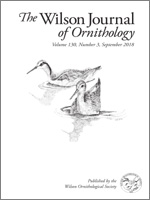Begging by nestling passerines is an important way to communicate their state of hunger to parents. We examined whether experimentally increased nestling begging vocalizations can quickly alter parental provisioning rates in European Starlings (Sturnus vulgaris). We predicted that an increase in begging volume heard by parents during the experimental treatment would result in a significantly higher number of provisioning visits compared to the pre-playback control of natural begging levels. Total number of parental provisioning visits during 1 h control and experimental trials were compared for 23 broods of 14-day-old nestlings. Begging calls of each brood were recorded when nestlings were 13 days old; the loudest calls from each brood were made into a 3 min loop and projected continuously the next day during the experimental trial. As predicted, parents provisioned at a significantly higher rate during the experimental trials than the control trials. European starlings are sensitive to begging calls made by their offspring and respond quickly to any changes in their begging vocalizations.
How to translate text using browser tools
1 September 2018
Do parents listen to their children? Begging does not go unanswered in European Starlings (Sturnus vulgaris)
Hannah B. Corney,
Colleen A. Barber
ACCESS THE FULL ARTICLE
begging playback
European Starling
flexible parental response
increased provisioning
nestling vocalizations
parent-offspring communication





